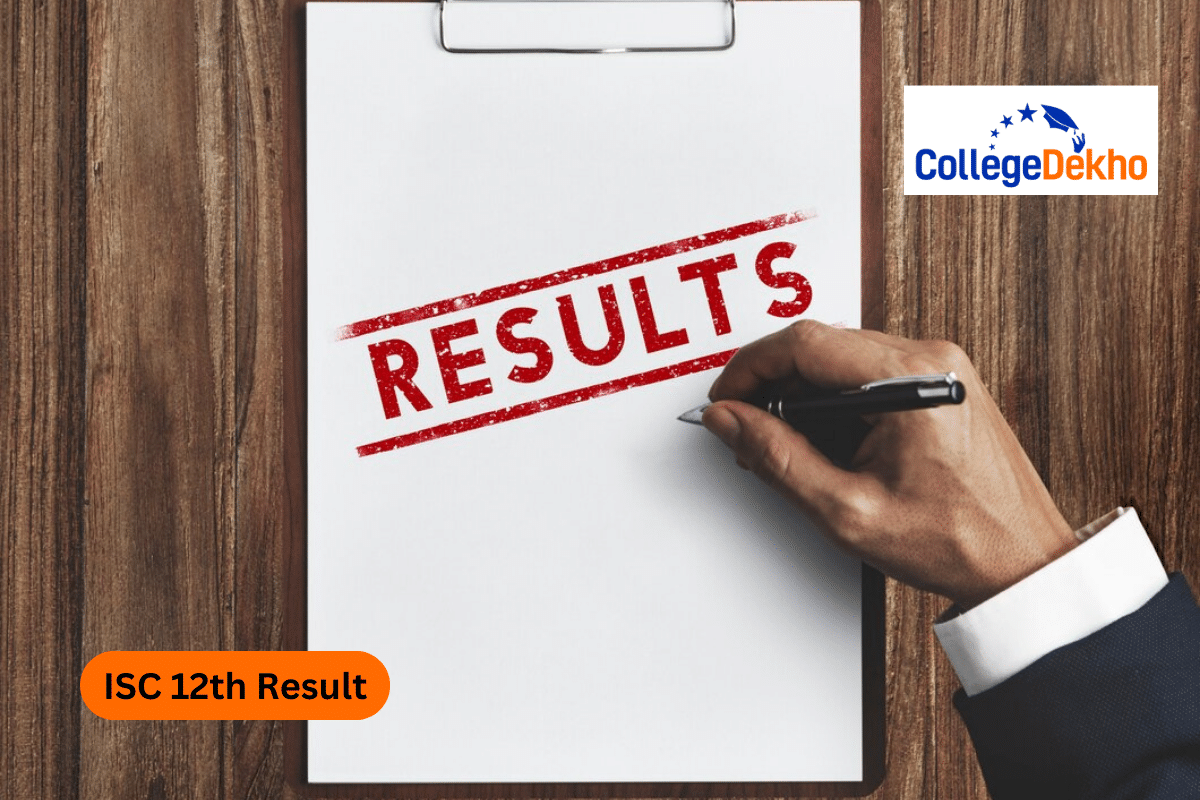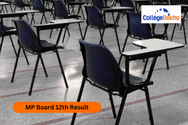- CBSE Class 12 Latest Updates 2025
- CBSE Class 12 History Important Questions 2025: High Weightage Questions
- CBSE Class 12 History Important Questions 2025: 6 Mark Questions
- CBSE Class 12 History Important Questions 2025: 4 Mark Questions
- CBSE Class 12 History Important Questions 2025: 2 Mark Questions
- CBSE Class 12 History Important Questions 2025: 1 Mark Questions
- CBSE Class 12 History Important Questions 2025: Map-Based Questions
- CBSE Class 12 History Question Paper Format 2025
- CBSE Class 12 History Exam Pattern 2025
- Faqs

Never Miss an Exam Update
CBSE Class 12 History Important Questions 2025 helps in revision. Before going to appear for the exams, you should know the exam pattern in detail. The History question paper will be divided into 5 parts - A, B, C, D, and E. The first part will include 21 multiple choice questions worth 1 mark each. In the second part, you will have to answer 6 short answer questions for 3 marks each. The third part of the question paper will include 3 long answer questions. Each question will be of 8 marks. The next section will consist of 3 source-based questions of 4 marks each. In each question, there will be 3 sub-questions. The fifth part of the question paper will be the last part including map-based questions. The question will be of 5 marks. The subject is divided into three parts. Each part will include questions worth 25 marks. The remaining 20 marks will be reserved for project work, and 5 marks will be dedicated for map-related questions.
In this article, we have included the questions from different chapters of CBSE Class 12 History. The questions help students in preparing for the board exams. By solving such questions repeatedly, students can improve their critical thinking, writing skills, and conceptual understanding. The regular practice helps in answering the questions quickly and correctly in the board exam. After completing the syllabus, students can also try solving the CBSE Class 12 History Previous Year Question Papers.
Considering the sample papers, we have got a list of questions from all chapters. Check out the questions and practice them regularly to perform well in board exams. The students should carefully read the questions and understand them before answering. While writing the answer, students should also pay attention to the marks allocation. According to the marks, they can decide the points to be added in the answers. This will help them to write exact answers and perform well in board exams.
CBSE Class 12 Latest Updates 2025
- 21st February 2025: The Central Board of Secondary Education has released the date sheet for class 12 students on the official website to be downloaded in a PDF format. According to the date sheet, the class 12th History paper will be conducted on 1st April 2025.
CBSE Class 12 History Important Questions 2025: High Weightage Questions
Read the following source carefully and answer the question that follows. "I believe separate electorates will be suicidal to the minorities" During the debate on 27 August 1947, Govind Ballabh Pant said: I believe separate electorates will be suicidal to the minorities and will do them tremendous harm. If they are isolated forever, they can never convert themselves into a majority and the feeling of frustration will cripple them even from the very beginning. What is it that you desire and what is our ultimate objective? Do the minorities always want to remain as minorities or do they ever expect to form an integral part of a great nation and as such to guide and control its destinies? If they do, can they ever achieve that aspiration and that ideal if they are isolated from their community? I think it would be extremely dangerous for them if they were segregated from the rest of the community and kept aloof in an airtight compartment where they would have to rely on others even for the air they breathe. The minorities if they are returned by separate electorates can never have any effective voice.
- 1. What was a Separate electorate?
- 2. For which class was the provision of a separate electorate made?
- 3. Why were the nation's leaders of the constituent Assembly opposing it?
Also Read: CBSE Class 12 History Sample Paper 2025
CBSE Class 12 History Important Questions 2025: 6 Mark Questions
Below are the questions of the CBSE 12th History exam 2025 that carry 6 marks each:- Q.1 Explain the stages of the conquest of Awadh by the British from 1801 onwards.
- Q.2 “Issues of ‘division of power of the government’ at the center and state level were intensely debated in the constituent assembly”. Explain the statement with examples.
- Q.3 Study the following source carefully and answer the questions that follow:
- Q.4 Read the following source carefully and answer the questions that follow:
“The British element is gone, but they have left the mischief behind”
Sardar Vallabh Bhai Patel said: It is no use saying that we ask for separate electorates because it is good for us. We have heard it long enough. We have heard it for years, and as a result of this agitation we are now a separate nation … Can you show me one free country where there are separate electorates? If so, I shall be prepared to accept it. But in this unfortunate country if this separate electorate is going to be persisted in, even after the division of the country, woe betide the country; it is not worth living in. Therefore, I say, it is not for my good alone, it is for your good that I say it, forget the past. One day, we may be united … The British element is gone, but they have left the mischief behind. We do not want to perpetuate that mischief.
(Hear, hear). When the British introduced this element, they had not expected that they would have to go so soon. They wanted it for their easy administration. That is all right. But they have left the legacy behind. Are we to get out of it or not?
CAD, VOL.V
- ‘They have left a legacy behind “who is referred as’ They’ ‘in this statement.
- What do you infer from the statement ‘they have left the legacy behind?
- Identify the ultimate message stressed by Sardar Valla Bhai Patel in his speech.
- Q.5 Why were the imperial officers in the Mughal Empire described by the court historians as a “bouquet of flowers” explain.
- Q.6 Study the following source carefully and answer the questions that follow:
The following is a listing of criteria of classification excerpted from the Ain : The Emperor Akbar in his profound sagacity classified the lands and fixed a different revenue to be paid by each. Polaj is land which is annually cultivated for each crop in succession and is never allowed to lie fallow. Parauti is land left out of cultivation for a time that it may recover its strength. Chachar is land that has lain fallow for three or four years. Banjar is land uncultivated for five years and more. Of the first two kinds of land, there are three classes, good, middling, and bad. They add together the produce of each sort, and the third of this represents the medium produce, one-third part of which is exacted as the Royal dues.
I.) Why was Chachar land left uncultivated for some three to four years?
ii.) Explain the basis of this classification.
iii.) Do you think it was a sound basis to assess the revenue? Explain.
Also Read - CBSE Class 12 Result 2025
CBSE Class 12 History Important Questions 2025: 4 Mark Questions
The following are some of the 4 mark questions that are significant for the CBSE class 12 History examination 2025:- Q.1 Prove with the help of examples that the Harappans had established their contacts with Western Asia for purchase/exchange of artifacts.
- Q.2 ‘Mahanavami Dibba of Vijayanagara was the centre of elaborate rituals.’ Explain the statement with suitable examples.
- Q.3 Examine why were the religious divisions between Hindus and Muslims hardly noticeable during the uprising of 1857.
CBSE Class 12 History Important Questions 2025: 2 Mark Questions
The following are some of the 2 mark questions that are significant for the CBSE class 12 History examination 2025:- Q.1 “Coinage plays a valuable role in determining certain period of Indian history.” Justify the statement by giving two points.
- Q.2 State any two characteristic features of the ‘new Black Town’ developed during the colonial period in Madras.
- Q.3 Explain with examples the layout design of the Great Bath on the Citadel in Mohenjodaro.
- Q.4 Examine the main features of the towns of South India during the medieval period of Indian history.
- Q.5 Consider the following statements:
b) While historians often attempt to draw factual information from such a composition, those who composed and read them often treasured them as works of poetry rather than as accounts that were literally true. This excerpt is an example of such a case.
Choose the correct option:
(i) Both (a) and (b) are correct.
(ii) Only (b) is correct.
CBSE Class 12 History Important Questions 2025: 1 Mark Questions
The 1 mark carrying questions in the CBSE class 12 History exam 2025 that are some of the important questions are as follows:- Q.1 Ancient Mesopotamian texts refer to copper coming from a place called ‘Magan’.Which place were they referring to?
-
Q.2 Which one of the following statements is the correct explanation of ‘Endogamy’?
(a) Marriage outside a kin group.
(b) Marriage within a kin group.
(c) A woman having several husbands.
(d) A man having several wives.
- Q.3 The Buddha’s foster mother, Mahapajapati Gotami was the first woman to be ordained as a _________.
-
Q.4 Assertion (A): Kabir’s Poem has survived in several languages and dialects.
- Reason (R): He used terms drawn from Vedantic traditions, Alskh (the unseen), Nirakar (formless), Brahman, Atman, etc.
- Both A and R are true and R is the correct explanation of A.
- Both A and R are true and R is not the correct explanation of A.
- A is true but R is false.
- R is true but A is false.
Q.5 Which two statements are adopted by archaeologists to identify social differences among the Harappans?
(i) Study of burials
(ii) Study of script
(iii) Study of trade and commerce
(iv) Study of artifacts
Both (i) and (iv)
Both (ii) and (iii)
Both (i) and (iii)
Q.6 Consider the following statements.
An Interim Government was made in 1946 under the leadership of Jawaharlal Nehru
K. Sanathan from Madras strongly favored the rights of states
Mahatma Gandhi wanted to keep Hindi as the National language.
CBSE Class 12 History Important Questions 2025: Map-Based Questions
Given questions are map question that includes identification and location of significant test items. Attach the map with the answer book.- Q.1 On the given political outline map of India, locate and label the following with appropriate symbols :
(b) Champaran, a centre of National Movement OR Gwalior – a centre of the Revolt of 1857. On the same outline map three places have been marked as A, B, C which are related to the mature Harappan sites. Identify them and write their correct names on the lines marked near them.
- Q.2 On the given political outline map of India, locate and label the following with appropriate symbols :
(ii) Kaushambi a pillar inscription
- Q.3 On the given political map of India, locate and label the following with appropriate symbols :
b) Agra, a territory under Babur, Akbar, and Aurangzeb
OR
Calcutta, a main center of the revolt in 1857
c) Dandi
CBSE Class 12 History Question Paper Format 2025
You can refer to the exam format that will be followed by the Central Board of Secondary Education to frame the question paper for 2025 from the table given below:
Section | Question Numbers | Question Type | Marks per Question | Total Marks |
|---|---|---|---|---|
A | 1 to 21 | Multiple Choice Questions (MCQs) | 1 mark | 21 marks |
B | 22 to 27 | Short Answer Questions | 3 marks | 18 marks |
C | 28 to 30 | Long Answer Questions | 8 marks | 24 marks |
D | 31 to 33 | Source-Based Questions (3 sub-questions each) | 4 marks per question | 12 marks |
E | 34 | Map-Based Question | 5 marks | 5 marks |
CBSE Class 12 History Exam Pattern 2025
The syllabus in History is divided into 3 parts which are equally important to study. Each part will carry 25 marks and 5 marks will be given to the map-based questions. The theory paper in History will be conducted for 80 marks and 20 marks will be provided for the project work which is to be submitted before the board exams. You can refer to the information regarding the latest CBSE Class 12 History Exam Pattern 2025 from the table given below and use it to efficiently prepare for the exam:
Part—I | |
|---|---|
Theme Title | Marks |
Bricks, Beads and Bones The Harappa Civilisation | 25 Marks |
Kings, Farmers and Towns Early States and Economies (c.600 BCE600 CE) | |
Kingship, Caste and class Early Societies (c. 600 BCE600 CE) | |
Thinkers, Beliefs and Buildings Cultural Developments (c. 600 BCE600 CE) | |
Part—II | |
Theme Title | Marks |
Through the eyes of Travellers Perceptions of Society (c. tenth to seventeenth centuries) | 25 Marks |
Bhakti-Sufi Traditions Changes in Religious Beliefs and Devotional Texts (c. eighth to eighteenth centuries) | |
An Imperial Capital – Vijayanagar (c. fourteenth to sixteenth centuries) | |
Peasants, zamindars and the States Agrarian Society and the Mughal Empire (c. sixteenth-seventeenth centuries) | |
Part-III | |
Theme Title | Marks |
Colonialism and The Countryside Exploring Official Archives | 25 Marks |
Rebels and Raj 1857 Revolt and its Representations | |
Mahatma Gandhi and the National Movement Civil Disobedience and Beyond | |
Framing of the Constitution The Beginning of a New Era | |
Map work of the related Themes | 5 Marks |
Theory Total | 80 Marks |
Project Work | 20 Marks |
Total | 100 Marks |
Actively solving the CBSE Class 12 History Important Questions 2025 helps you to understand the curriculum simply. You can pick up sample papers available on the official website of CBSE to efficiently revise for the exam. It will also help you to learn about the commonly asked topics.
FAQs
In total, students will have to answer 34 questions in the CBSE Class 12 History exam. The questions will be of different types. Before answering the questions, students should check the marking scheme and answer the questions accordingly.
In the CBSE Class 12 History exam, students will have to answer multiple choice questions, short answer questions, source-based questions, and long questions.
The students should focus equally on all the chapters included in the CBSE Class 12 History syllabus. According to the marks, they can devote more time to the important chapters with the highest marks. In this way, they will not miss out on important chapters. Moreover, a good understanding of the chapter will make it possible for them to answer accurately.
The students can aim at scoring above 95% marks in CBSE Class 12 History exam by answering the questions well. They should analyze the question and check the marks before answering it. The points to be included in the answers should depend on the marks allotted to the question.
Students should pay equal attention to each chapter and try to understand them thoroughly. With good knowledge of the chapter, it will be easy to perform well in board exams.
CBSE Class 12 result can be expected on May 13, 2025. The result will be announced on the official website of the board. Using the login credentials, students will be able to view the result online.
Was this article helpful?

































